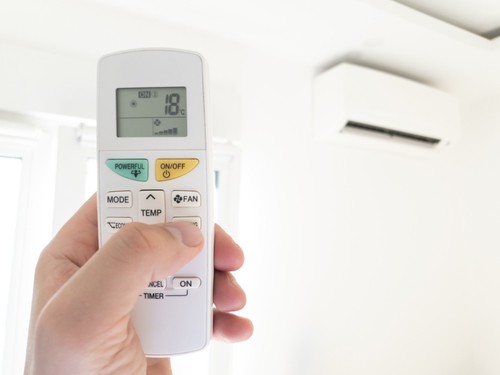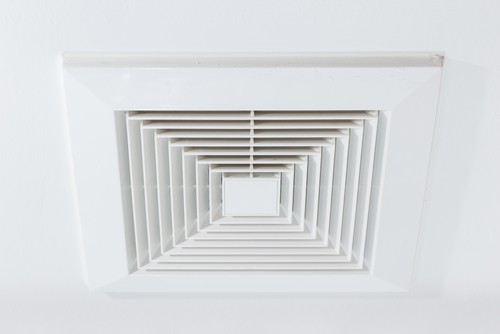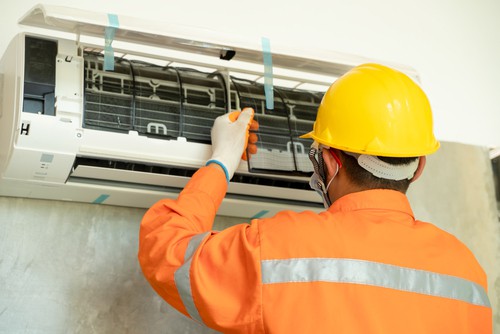
Air Duct Cleaning in Commercial Aircon Servicing
July 23, 2023
Quick Fixes for Noisy Air Conditioning Units
September 22, 2023The Dangers of an Overworked Air Conditioning System
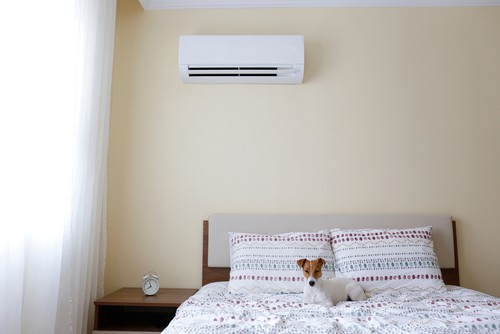
The Dangers of an Overworked Air Conditioning System
What are the dangers of an overworked air conditioning system? In the heart of our tropical Singapore, air conditioners have become indispensable, providing respite from the sweltering heat.
However, just as a car needs regular service, an air conditioning system requires proper care and maintenance to function optimally.
A well-maintained air conditioning system provides comfort, increases energy efficiency, improves indoor air quality, and prolongs the unit’s lifespan.
What is an ‘Overworked’ AC System?
An overworked air conditioner operates beyond its optimal capacity. It might be continually running, frequently restarting, or working harder than necessary due to multiple internal and external factors.
Both external factors, such as extreme outdoor temperatures, and internal factors, like incorrect sizing or poor maintenance, can contribute to overworking your air conditioner.
Consequences of an Overworked AC
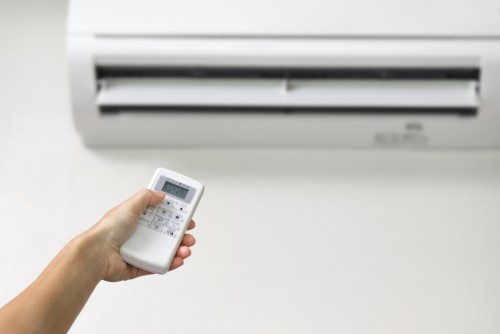
Reduced Cooling Efficiency
Overworking causes your air conditioner to lose its cooling efficiency, failing to provide the desired comfort.
Increased Energy Bills
An overworked AC unit consumes more energy, leading to higher electricity bills.
Accelerated Wear and Tear
Overworked air conditioners experience faster degradation, leading to frequent aircon repairs or replacements.
Shortened Lifespan of Your AC
Constant strain reduces the overall lifespan of your air conditioner, necessitating premature replacement.
Potential Health Risks
An overworked air conditioner may fail to effectively filter the air, leading to a buildup of dust and allergens, posing potential health risks.
Signs of an Overworked AC
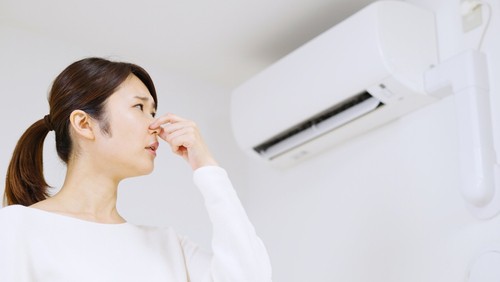
Continual Operation without Rest
If your AC unit is running incessantly without shutting down, it might be overworking.
Overheating Components
Overheated components in your AC unit may indicate overwork and could lead to potential fire hazards.
Frequent Circuit Breaker Trips
Circuit breakers tripping frequently may suggest that your AC system is drawing more power than it should.
Excessive Noise and Vibration
Unusual noises or vibrations from your AC unit can be a warning sign of an overworked system.
Unusual Smells
Unpleasant odors emitting from your AC may signify overheating parts or burning insulation.
Reasons Why Your AC Might Be Overworked
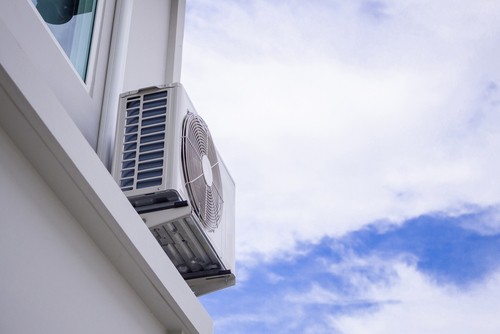
Incorrect Sizing
An improperly sized AC unit for your space can lead to overworking as it struggles to maintain a comfortable temperature.
Lack of Regular Maintenance
Failing to service your AC regularly can cause an accumulation of dust and dirt, forcing it to work harder.
Insufficient Ventilation
Poor ventilation can trap hot air indoors, causing your AC to overwork to maintain cool temperatures.
Extremes in Outdoor Temperatures
Extreme outdoor temperatures force your air conditioner to work harder to maintain indoor comfort.
Clogged or Dirty Filters
Dirty or clogged filters obstruct airflow, making your AC unit work harder to cool your space.
Mitigating the Dangers
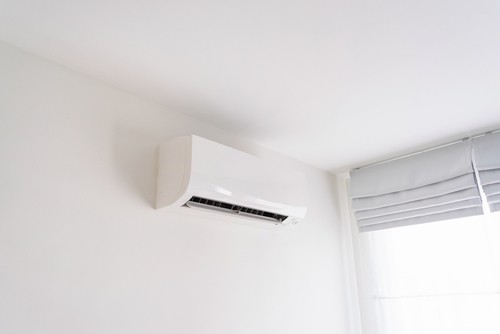
Proper Sizing and Installation
Ensure your AC unit is correctly sized for your space and installed by professionals to avoid overworking.
Regular Maintenance and Servicing
Regular cleaning and servicing can keep your AC running efficiently and prevent overwork.
Optimal Thermostat Settings
Maintain thermostat settings within a comfortable range to prevent overworking your AC system.
Improving Home Insulation
Better home insulation can maintain indoor temperatures and prevent your AC from overworking.
The Role of Energy-Efficient Air Conditioning Systems
Energy Efficiency Ratio (EER) and Seasonal Energy Efficiency Ratio (SEER) are standards to measure the energy efficiency of AC systems.
Energy-efficient AC systems reduce energy consumption, lower utility bills, improve cooling efficiency, and are environmentally friendly.
Importance of Selecting the Right AC System
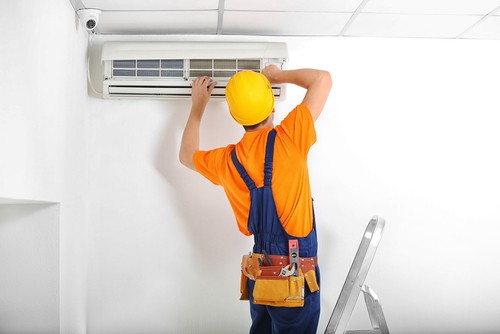
Selecting the right AC system involves several considerations, including your space’s size, cooling requirements, energy efficiency ratings, and budget.
Professional AC contractors can help guide you to the right AC system for your home, considering all of the aforementioned factors and ensuring correct installation.
Potential Risks of DIY AC Installation
A DIY approach to aircon installation may result in improper setup, leading to inefficiencies, potential damages, and increased risk of overworking AC.
AC installation involves handling electrical components, which, if done improperly, can lead to electrical shocks, fires, or other safety hazards.
How Regular AC Maintenance Saves You Money
- Regular AC maintenance can detect and fix minor issues before they escalate into expensive repairs, hence saving you money.
- Maintenance extends the lifespan of your AC system, preventing premature replacement costs.
- Regular maintenance keeps your AC system operating at peak efficiency, reducing energy consumption and lowering your utility bills.
Frequently Asked Questions (FAQs)
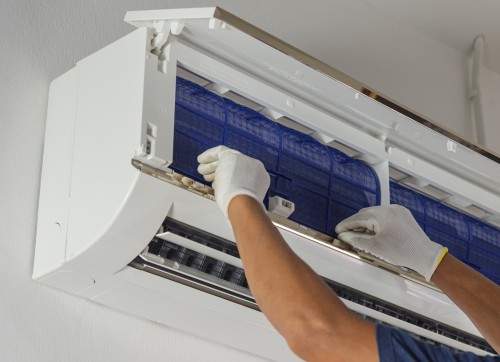
What is the Ideal Running Time for an AC?
The ideal running time for an AC is around 15-20 minutes per cycle, with 2-3 cycles per hour.
How Often Should I Schedule Professional Maintenance?
Professional maintenance should be scheduled at least once a year, ideally before the hot season starts.
How Can I Tell if My AC is the Right Size for My Home?
Professional HVAC contractors use Manual J load calculation to determine the correct AC size for your home.
What are Some Energy-Efficient Alternatives to Traditional AC Systems?
Ductless mini-split systems, geothermal heat pumps, and evaporative coolers are some energy-efficient alternatives to traditional AC systems.
The Dangers of an Overworked Air Conditioning System – Conclusion
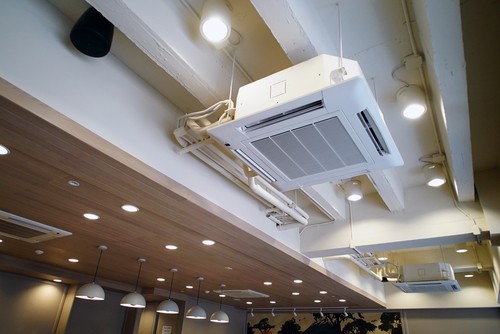
The risks associated with an overworked AC system are substantial, from reduced cooling efficiency to potential health hazards.
Proper care, maintenance, and energy-efficient systems can help mitigate these risks.
Regular care and servicing are paramount to the efficient functioning of your AC system.
It ensures optimal performance and safeguards against the dangers of an overworked system.
Are you seeking a professional and reliable one-stop aircon servicing company in Singapore? Contact us today!

